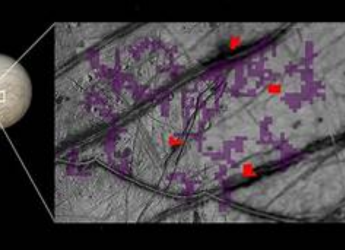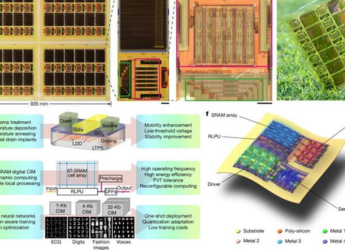- Home
- Science
- Science News
- This New Phase of Matter Will Help Make Quantum Computers More Stable and Error Free
This New Phase of Matter Will Help Make Quantum Computers More Stable and Error-Free
Qubit stability is a significant milestone in the path toward making an error-free quantum computer.

Photo Credit: Quantinuum
The quantum computer used by the researchers is based on 10 ions of an element called ytterbium
Physicists have managed to make a stunning discovery in quantum computing. By shining pulsed lights on qubits, the equivalent of computer bits in quantum theory, scientists observed a new phase of matter that seemed to occupy two different time dimensions instead of one. This new phase of matter allows qubits to remain much more stable. The scientists observed that the qubits did not degrade during the entire duration of the experiment. Qubit stability is a significant milestone in the path towards making an error-free quantum computer.
“I've been working on these theory ideas for over five years, and seeing them come actually to be realised in experiments is exciting,” said study lead author Philipp Dumitrescu of Flatiron Institute, New York. Dumitrescu collaborated with scientists from Canada and the US to publish the paper in the science journal, Nature, on July 20.
The quantum computer used by the researchers is based on 10 ions of an element called ytterbium. These 10 ions are manipulated or measured using laser pulses while being held and controlled by an ion trap. While computer bits store data in the form of 1s and 0s, a qubit can exist in both states at the same time due to quantum superposition. Another quantum phenomenon, known as quantum entanglement, determines how the qubits' relation to each other affects their unknown state. But, to complicate matters, the qubits can also entangle with almost everything else, which can introduce errors.
"Even if you keep all the atoms under tight control, they can lose their quantumness by talking to their environment, heating up or interacting with things in ways you didn't plan. In practice, experimental devices have many sources of error that can degrade coherence after just a few laser pulses," Dumitrescu explained.
The team of scientists introduced symmetry in the qubits across the time dimension instead of space to achieve coherence and eliminate many of the errors. Though the work was successful in making the qubits far more stable than before, it still is a long way off from being integrated into an actual working quantum computer. But, the work is instrumental in building a working large-scale quantum computer, the scientists said.
Get your daily dose of tech news, reviews, and insights, in under 80 characters on Gadgets 360 Turbo. Connect with fellow tech lovers on our Forum. Follow us on X, Facebook, WhatsApp, Threads and Google News for instant updates. Catch all the action on our YouTube channel.
Related Stories
- Samsung Galaxy Unpacked 2025
- ChatGPT
- Redmi Note 14 Pro+
- iPhone 16
- Apple Vision Pro
- Oneplus 12
- OnePlus Nord CE 3 Lite 5G
- iPhone 13
- Xiaomi 14 Pro
- Oppo Find N3
- Tecno Spark Go (2023)
- Realme V30
- Best Phones Under 25000
- Samsung Galaxy S24 Series
- Cryptocurrency
- iQoo 12
- Samsung Galaxy S24 Ultra
- Giottus
- Samsung Galaxy Z Flip 5
- Apple 'Scary Fast'
- Housefull 5
- GoPro Hero 12 Black Review
- Invincible Season 2
- JioGlass
- HD Ready TV
- Laptop Under 50000
- Smartwatch Under 10000
- Latest Mobile Phones
- Compare Phones
- Realme 16 5G
- Redmi Turbo 5
- Redmi Turbo 5 Max
- Moto G77
- Moto G67
- Realme P4 Power 5G
- Vivo X200T
- Realme Neo 8
- HP HyperX Omen 15
- Acer Chromebook 311 (2026)
- Lenovo Idea Tab Plus
- Realme Pad 3
- HMD Watch P1
- HMD Watch X1
- Haier H5E Series
- Acerpure Nitro Z Series 100-inch QLED TV
- Asus ROG Ally
- Nintendo Switch Lite
- Haier 1.6 Ton 5 Star Inverter Split AC (HSU19G-MZAID5BN-INV)
- Haier 1.6 Ton 5 Star Inverter Split AC (HSU19G-MZAIM5BN-INV)

















